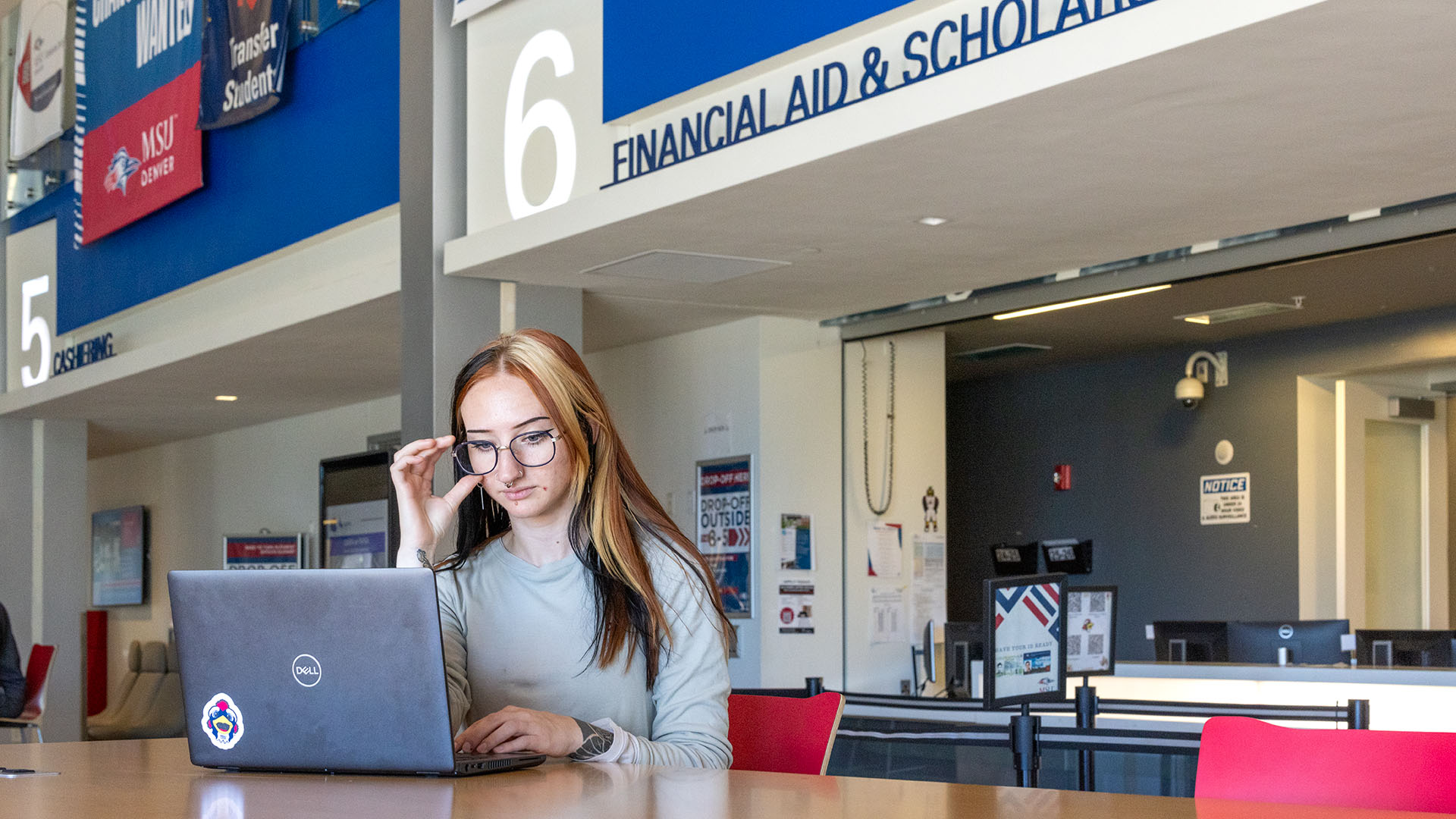Coronavirus and the economy explained
What’s happening in the stock market and how can you be financially prepared for the road ahead? Economics Professor Kishore Kulkarni weighs in on the situation in Colorado and the country.

This story was updated March 16 to reflect rapidly changing developments.
In the wake of the World Health Organization officially declaring COVID-19 a pandemic, the stock market has entered bear-market territory after shaving more than 20% off its recent peak and with the Dow Jones Industrial Average having its worst day since 1987. RED connected with Metropolitan State University of Denver economics Professor Kishore Kulkarni to separate the facts from fiction in this volatile financial landscape and provide advice for individuals to weather the storm.
The stock market has been plunging. What is going on right now?
Kulkarni: The world is in a very unpredictable place right now – it has exposed the economic sensitivities across the globe, not just the United States. This is unprecedented; not many people know what’s happening, including political leaders.
However, there is some knowledge. We’re looking to medical experts who are best-equipped to chart the path forward, but we’re still in uncharted territory.
Why is the market reacting the way it is?
Kulkarni: In a word, uncertainty. Investors like to buy stocks when they’re confident they know what will happen. If you don’t know that, you’re naturally going to shy away from it.
Right now, there’s still so much unknown – a lot of people are asking, “Where are we headed? When will this turn around?” That’s causing some investors to move their money into cash and safer liquid investments until we have a clearer picture.
There was a pretty significant announcement Sunday – what happened and what does it mean?
Kulkarni: The Federal Reserve made a surprise announcement to lower the discount rate to range from zero to 0.25%. This is what is charged to commercial banks and financial institutions; it affects the federal funds rate and prime rate, which incentivizes low-cost borrowing by businesses and consumers.
Additionally, they announced the intent to buy up to $700 billion in mortgaged-backed securities and treasury bonds, providing cash to bond sellers. The Fed buys the bonds, the market gets an injection of cash, which increases liquidity across the financial system. This is the same process in 2010 and 2012 known as “quantitative easing,” but it’s unprecedented in the sense that this was done without meetings over the weekend to announce their intent to the market.
Across the board, banks will lower their interest rates. The idea is to increase the overall or aggregate demand for goods and services, creating incentive for people to borrow at a low rate and spend that money to boost the economy. If you’re thinking about buying a house or refinancing, this could be an excellent opportunity – I’d expect mortgage rates to be down to 3% within the next week.
The Dow just lost nearly 3,000 points on Monday, though; what happened?
Kulkarni: The market is more nervous than the steps telling them not to be. In a naive approach to economics, you’d say “Oh, that’s good news; interest rates are falling, so the markets will go up.” That doesn’t counter the anxiety around closing schools and commercial venues, though – if there are no exchanges, there’s no demand.
What impacts are occurring locally in Colorado?
Kulkarni: Statewide, we’re looking at potentially devastating effects on the oil-and-gas industries; other energy-producing regions such as West Texas and Alaska are also vulnerable. Theoretically, it’s good for consumers to have gas that’s under $2 per gallon, but that’s tempered by the fact that people won’t be traveling like they do normally.
As Gov. Jared Polis said, this will get worse before it gets better. The main question is: How much worse?
How is this, a public-health crisis, different from a purely financial crisis?
Kulkarni: This is a big shock to the global economy. China is such a big country and producer, so we’re seeing a ripple effect from supply-chain disruption that goes beyond just there and the U.S. Some predict a destruction of more than 2% of global output, which could be upward of $2.3 trillion.
That said, it’s all-important not to panic, as that will add to the crisis. It’s similar to the 2008 financial crisis in that we also saw a lot of uncertainty at the time when we didn’t know how long that would last at the time – but we eventually recovered.
The Federal Reserve plans to inject $1.5 trillion into the economy; what do you see as the impact of this?
Kulkarni: It could be a good step, but it’s sufficiency will be decided by what happens in the future. I do not think this is going to make a significant change to the overall situation, however.
Are any sectors positioned to do well in this uncertain environment?
Kulkarni: We’ve seen some movement in health-related companies or those like Clorox zooming up, and talk around companies like Netflix benefiting from more people staying home, but few stocks are expected to do well, because of the overall dire situation.
As such, prices will go down in the next few months. Those who have cash on hand are positioned well to buy stocks at a lower price, along with things like real estate.
Are we in a recession?
Kulkarni: I think we’re entering one before we know it. We haven’t seen border closures and flight stoppages like this before, so undoubtedly it will be difficult in the next few months.
What advice to have for individuals who are concerned about their retirement accounts?
Kulkarni: Remaining calm is so important. If you’re younger – in your 30s or 40s – just sit tight. Your retirement account will turn around during your lifetime; it might take three or four years or even more, but it will.
If you’re closer to retirement, it might be wise to check in with a financial advisor to find out liquidity options such as bonds to ensure your return. Again though, not panicking is key.
What about folks who are in underresourced or marginalized communities?
Kulkarni: As much as you’re able to, start saving now. With the uncertainty, we want people to be prepared if companies begin laying off employees and jobs are harder to find. Relatedly, workers should start thinking about productivity, flexibility and training for a variety of skills in case they need to begin looking for more or different jobs.
I think things will be difficult in the short term, but we’ll rebound – we’ve got a history of it.
Metropolitan State University of Denver is diligently monitoring the emerging cases of COVID-19 in Colorado and providing updates to the University community on its dedicated Coronavirus Updates and Resources webpage.
RED will continue to report the effects of COVID-19 on Colorado’s economic, scientific and cultural sectors in subsequent stories.







